Spring 2018 Newsletter
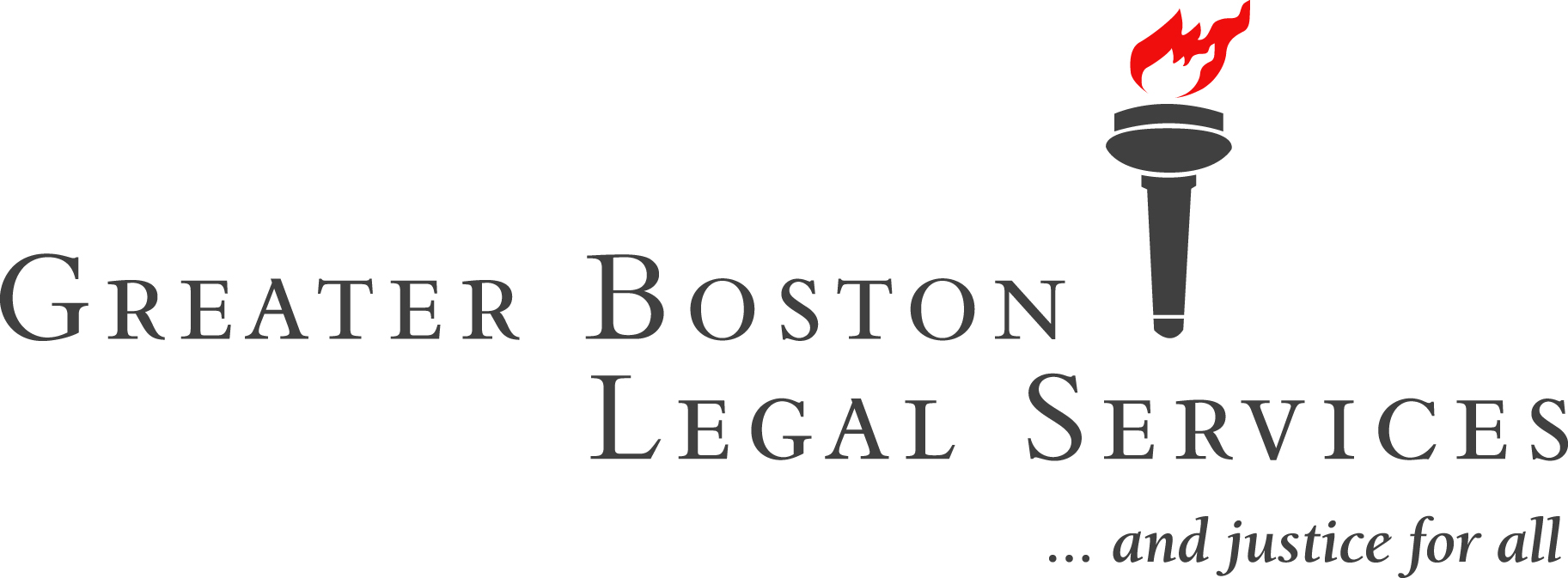
Spring 2018 Newsletter
Happy first day of spring! It might not feel much like spring outside, but this time of year makes one hopeful for better days ahead. Here at GBLS, we're hopeful about some new projects we have in the works. In particular, we're excited about our new website, which we debuted last month. If you haven't visited it yet, please check it out!
As always, our advocates are busy working hard for our clients. Read on to learn more about some of the interesting things they've been up to.
Thank you for being part of our community!
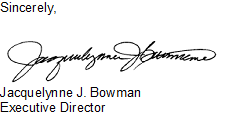
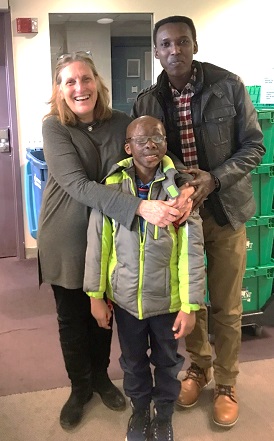
Client Success Story: Eli Gets the Treatment He Needs in the U.S.
Eli* was born in a remote village in eastern Africa as the youngest of ten children. When Eli was two years old, he was playing and fell into the fire that his mother used to cook the family meals. The fall caused serious burns to Eli’s face.
The local medical clinic could not treat Eli’s injuries, and his parents believed there was little more they could do. By the time Eli reached age three, he had begun to lose sight in one of his eyes, and his face was severely disfigured.
By chance, a traveling missionary visited Eli’s village and met Eli and his family. On seeing Eli’s severe injuries, the missionary decided to help. After unsuccessfully inquiring with medical programs in other parts of Africa, the missionary found someone in the U.S. who could provide the care that Eli needed to save his eyesight and hopefully repair the damage the fire had caused.
In 2014, at the age of five, Eli flew to Boston to begin medical treatment. Soon after, Eli’s caretaker, Michael, received news of deadly political violence in their home country. Eli’s family told Michael that they might have to flee their village for a refugee camp, and they were unable to care for Eli because of his medical issues. They told Michael that Eli had to stay with him in the U.S.
Michael was at a loss. His and Eli’s travel visas were about to expire. Michael had heard about the immigration services at Greater Boston Legal Services (GBLS), and he contacted GBLS for advice and assistance. After a GBLS attorney explained Eli’s options, Michael asked the attorney to help Eli apply to remain in the U.S. as an unaccompanied immigrant minor.
Eli’s GBLS attorney first asked the Court to put Eli into Michael’s legal guardianship so that Michael could make important decisions on Eli’s behalf, especially important since Eli’s parents were often unreachable in their refugee camp. Then GBLS asked the Court for an Order of Special Findings because, as Michael explained to the Judge, Eli’s parents could not support Eli’s emotional and medical needs, and it was in Eli’s best interest to remain in the United States in Michael’s custody.
At the conclusion of the hearing, the Judge issued the Order, expressing admiration of Eli’s courage and gratitude to Michael for all that he had accomplished and for the responsibility he had willingly undertaken to care for this young child. The Order rendered Eli eligible to petition for Special Immigrant Juvenile (SIJ) status, which he did, with GBLS’ help. After the SIJ petition was approved, Eli’s GBLS attorney helped him apply for his green card (or, as Eli put it, his “green car”).
On December 5, 2017, Eli became a lawful permanent resident of the United States. Now Eli can stay in the U.S. and continue to receive the medical care that he needs, attend school, and dream about who he wants to be when he grows up.
*Client’s name has been changed to protect his identity.
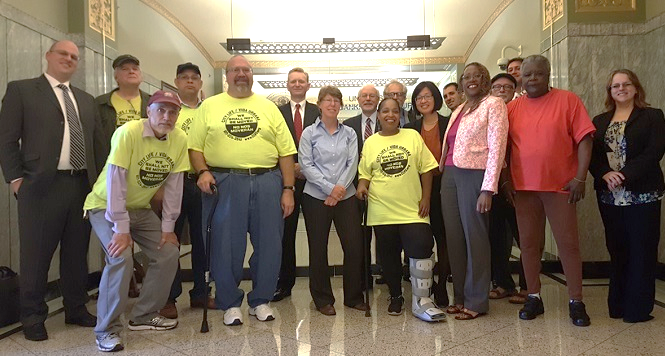
Empowering Clients Through Community Lawyering
“Community lawyering” is a phrase that seems to be on the tip of the tongue lately for many in the legal aid field. The Massachusetts Legal Services Community Lawyering Coalition, of which GBLS is a member, describes community lawyering as ‘a model of legal practice in which lawyers and other advocates work for meaningful social changes sought by community groups, their members, and their communities.’ For some GBLS’ advocates, it means a shift in how they serve clients.
As paralegal Annery Miranda says, “Community lawyering forces us to think more creatively and beyond our [legal] practice areas alone. It shifts our focus to a question of prime importance: What is the community asking for?”
In some ways, GBLS has been at the forefront of the community lawyering movement – dating back to the 1970s when GBLS attorneys worked out of neighborhood offices and were physically and practically embedded within their respective communities. These days, community lawyering extends beyond individual representation and impact advocacy, using those legal strategies as part of an organized campaign of systemic advocacy. It can include regular meetings with the community groups being served, educating them about the law and their rights, building leadership within the group, empowering the group to decide how to use their attorney to achieve the group’s goals, representing the group or its members in various forums, and helping the group develop special expertise in other areas that might further their goals.
Two GBLS employment law attorneys are focused on that last part currently, as they work with a group of domestic workers to help them create their own worker-owned cooperative. Creating cooperatives is an innovative approach to the low-income community’s need to increase economic development. Part of the process of creating a worker-owned cooperative is developing a business plan, something that legal aid attorneys might not normally consider as necessary to the resolution of their client’s case.
According to attorney Liliana Ibara, “When community lawyering works well, the legal work is integrated into a larger community-run campaign. A strong campaign can upend the traditional courtroom power dynamics that work against the most vulnerable, and help community members achieve legal and political victories that they could not get through legal means alone.”
For instance, through GBLS’ Asian Outreach Project, which has been doing community lawyering for several decades, advocates work closely with the Chinese Progressive Association (CPA) to help members of the community, individually and collectively. The Boston Chinatown community and CPA are currently focused on the issue of gentrification and tenant displacement in Chinatown. CPA identifies tenant groups that are facing eviction or want to fight for multi-year leases, and GBLS collaborates with CPA and represents the tenant groups. GBLS has trained tenants how to negotiate with landlords’ attorneys to secure multi-year leases and has represented tenants in housing court in eviction cases.
GBLS continues to help thousands of families and individuals through direct services, and even more through our impact work and legislative advocacy. But, community lawyering is becoming an important part of the social justice landscape. As Ms. Miranda says, “[Community lawyering] is an expansion of who is at the table when it comes to our conversations about how to support social movements and social change in our city” – conversations that GBLS sees as crucial to our vision of justice for all.
Pro Bono at GBLS – Doing Better at Doing Good
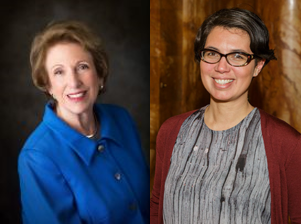
Since its inception, GBLS has worked with pro bono attorneys to maximize the legal resources available to clients in need. While continuing our longstanding partnership with the Volunteer Lawyers Project of the Boston Bar Association, in late 2017, GBLS moved to formalize our own pro bono program in order to effectively serve as many people as possible, particularly with legal needs beyond what other service providers can cover. In order to launch this much-needed venture, GBLS has engaged two dynamic individuals – Toni Wolfman, Access to Justice Fellow, and Melissa Gonzalez, Pro Bono Program Officer.
Toni is retired from a 27-year career at Foley Hoag LLP, where she was a partner in its litigation department and led the firm’s pro bono program. Among other notable activities, Toni has served on the boards of the Women’s Bar Association, Greater Boston Legal Services, the National Consumer Law Center, and the Lawyers’ Committee for Civil Rights. She has also served as a Trustee of the Boston Bar Foundation and of Smith College, where she was recently a Senior Philanthropic Advisor.
Melissa, on the other hand, came to legal services as a volunteer, first at Centro Presente and more recently on the board of Justice at Work. Prior to joining GBLS, she worked as a consultant to nonprofit organizations, focused on organizational strategy and economic sustainability. Her professional background includes experience in program design, impact evaluation, and teaching and research as an academic economist.
We sat down with Toni and Melissa recently to get their thoughts on the new pro bono program they’re helping to launch.
GBLS: Toni, the goal of your Access to Justice Fellowship project is to “institutionalize a system that will optimize the ways in which the private bar provides a range of legal services to GBLS clients, while also assisting in the professional development of the lawyers who participate.” What inspired you to want to do a fellowship focused on pro bono?
TW: During my years in practice, I devoted a significant amount of time and energy to pro bono work. I suppose that pro bono work is in my blood. In 1989, GBLS helped Foley Hoag start the first private law firm project to represent victims of domestic violence, a project that continues to this day.
GBLS: GBLS has worked with pro bono volunteers somewhat informally over the years. How and why is that changing now?
TW: With the increase in demand for legal services, GBLS needs to enlist more volunteer attorneys to help represent GBLS clients – the organization is forced to turn away far too many [clients] for lack of capacity. In order to effectively engage volunteer attorneys in helping to meet these needs, GBLS had to establish a more centralized system for working with the private bar.
MG: Yes, GBLS already has some great pro bono partnerships, but there was never a dedicated role within the organization to support pro bono volunteers. [This program] reflects GBLS's commitment to engage and support pro bono volunteers in a more systematic and consistent way.
GBLS: Members of our community hear about the needs that our clients have and they want to be of service. What can they do to help?
MG: There are many different ways to support GBLS. Both attorneys and non-attorneys can volunteer their time—and there are many different ways to contribute in addition to pro bono work.
TW: GBLS lawyers are increasingly finding themselves working in new areas in which they can benefit from the expertise of private practitioners. [Volunteers] are able to lend their knowledge and expertise to make a real difference in the lives of some of our community‘s most vulnerable people. And those who work at large law firms or corporations get the kind of hands-on experience that they otherwise would have to wait years to get in the normal course of their work.
MG: We can use pro bono attorneys in all of our areas of work; in particular, we have some needs related to immigration work and racial justice work (CORI) that are quite urgent.
GBLS: Thank you, both, for your efforts to bring this program to life. We look forward to hearing more about the pro bono program as it develops and allows GBLS to work more closely with members of the private bar to make a difference in our community.
The Access to Justice Fellows Program is a project of the Massachusetts Access to Justice Commission and the Lawyers Clearinghouse. Learn more about it here.



